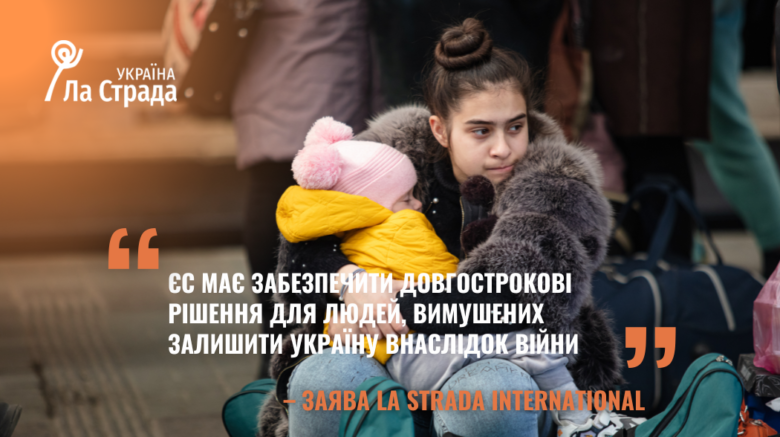The EU must provide long-term solutions for people displaced from Ukraine

Because of temporary protection ends on March 4, 2025, the EU leadership must urgently resolve the issue of ensuring the millions of people displaced from Ukraine, uninterrupted access to their rights and integration in Europe. As civil society organizations, we call on the EU to offer timely, coordinated, collective and long-term options to transition from temporary protection. Without a common European approach, millions of people risk becoming undocumented and losing access to rights, protection and other essential services, national authorities are likely to be overwhelmed and much of the integration work done by governments, municipalities, NGOs and volunteers is at risk be annulled.
Act now to prevent future chaos
With less than one year of protection left, people are now feeling the practical and emotional consequences of an uncertain future. Some face the prospect of enrolling their children in school without knowing if they will be able to finish the school year, while others struggle to find work or housing as their permits expire in March 2025. This uncertainty can trigger premature returns to Ukraine, where many people lack access to basic services and face daily security risks. It can also lead to massive applications for asylum and other residence permits, leading to backlogs and delays in access to protection.
The EU must ACT NOW to plan and coordinate the transition from temporary protection to prevent unsafe returns, loss of residence status or unnecessary pressure on migration systems, and to allow authorities, civil society and displaced persons to prepare
Displaced persons should be informed and counseled about the options available to them.
Seek a common response from the EU
If temporary protection expires without a collective European response, access to rights for people displaced from Ukraine may vary dramatically across EU member states. In January, the Ministers of Migration noted, what "the adoption of 27 different national legislative acts on this topic would be counterproductive, lead to secondary displacements and cause uncertainty". Without common standards, there is a risk of competition for the lowest standards in rights and services. In many countries the relevant permits there are none or they are few. This can particularly affect vulnerable groups such as stateless persons, refugees and asylum seekers who fled Ukraine, Roma, people with parental responsibilities and elderly beneficiaries who are at risk of losing their current access to rights, being redirected to inappropriate residence permits, or losing their documents.
The EU must prioritize a JOINT and COORDINATED approach to prevent people from becoming undocumented or switching to permits with fewer or different rights.
In parallel, Member States should ensure access to residence permits on various grounds, including asylum, work, principle non-excretion and private life.
Look to the future
If the above measures cannot be taken in time, further extension of temporary protection – as currently discussed – will be a vital step to ensure continued access to residence status and rights. However, the partial, annual extension of temporary protection risks maintaining a state of insecurity that prevents displaced persons from planning their future, whether in Ukraine or in the EU. The EU has a number of options for longer-term solutions, which should be studied in parallel with any extension.
The EU should strive for LONG-TERM SOLUTIONS that offer at least the same standard of rights as temporary protection and that protect the same groups of people.
It is necessary to develop solutions that can benefit other persons with temporary protection in the future.
These decisions should be based on the needs and experiences of displaced persons, as well as civil society and other stakeholders who assist them.
